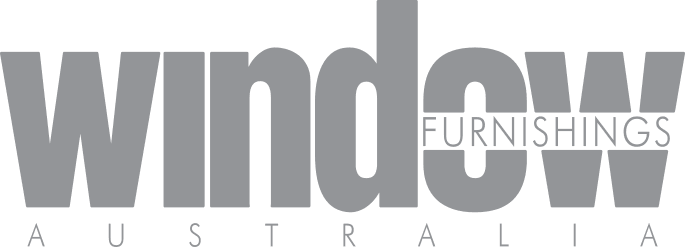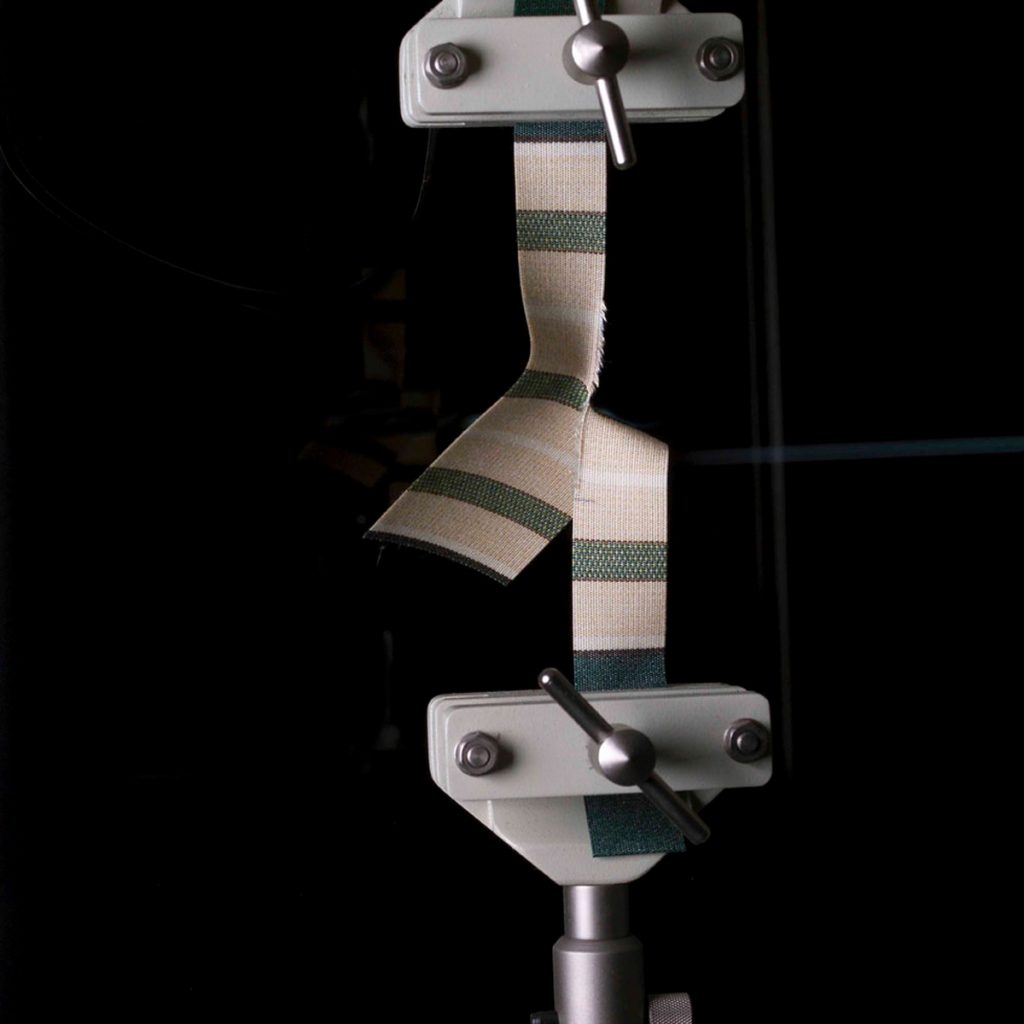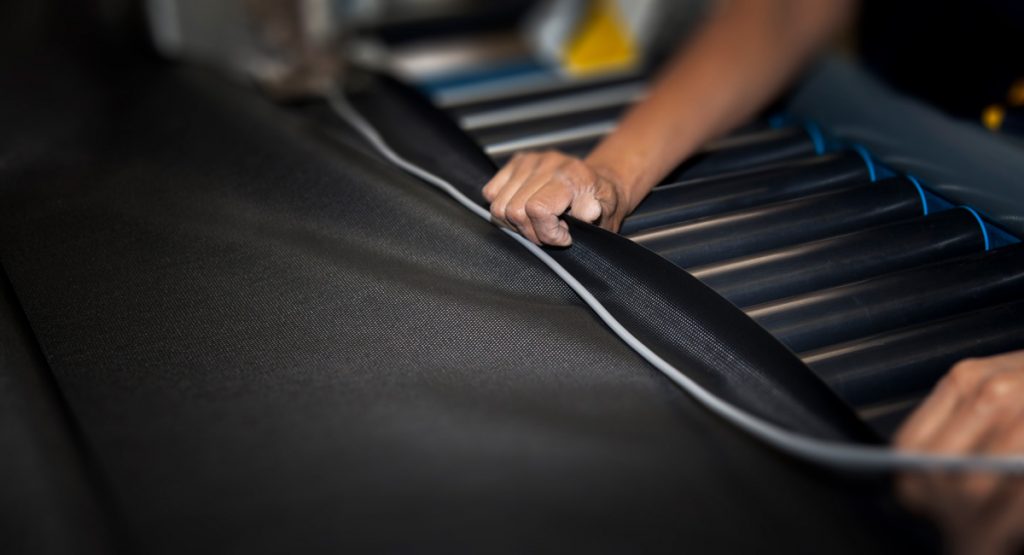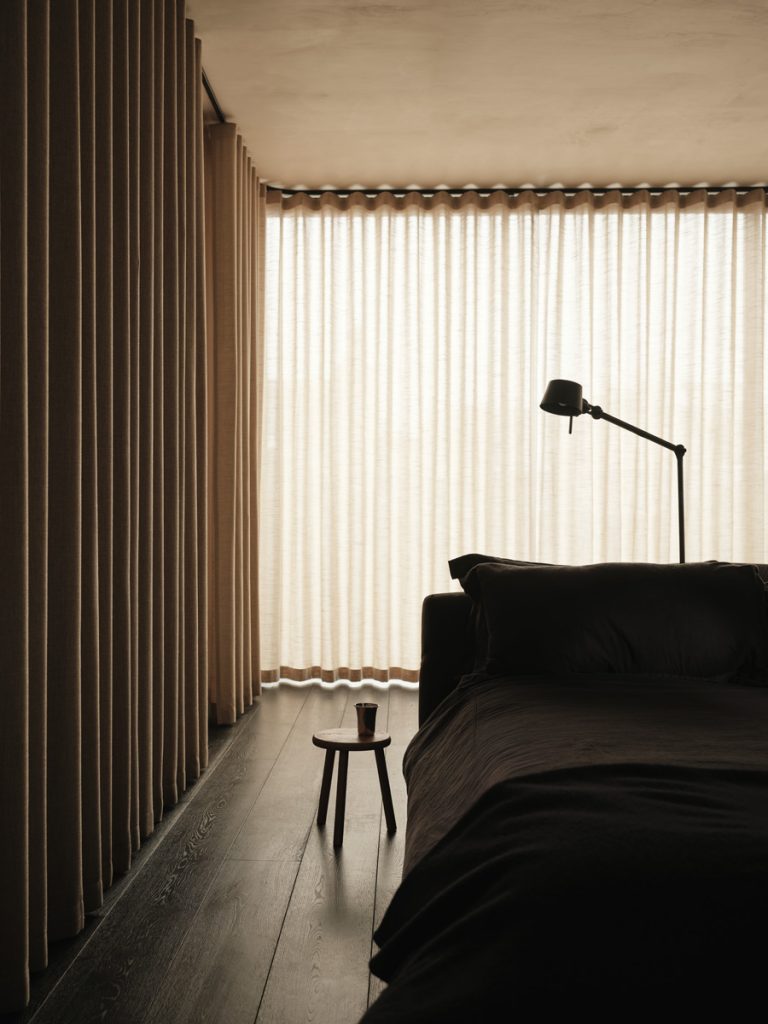

Norman
Norman Marketing Manager Giorgia English notes that the company’s vertically integrated manufacturing model is central to its ability to deliver consistent, high quality window furnishings.
“By producing up to 90% of its own components, such as weaving our own cords for blinds, Norman maintains complete control over the entire process, ensuring the quality of the final product at every stage, from raw materials to finished goods,” she says.
Equally important is the disciplined application of the Toyota Production System (TPS) across all aspects of the business. This includes Kaizen (continuous improvement), Hansei (reflective problem solving), Nemawashi (collaborative decision making), and GenchiGenbutsu (direct observation at the source).
“These principles shape how Norman approaches decision making, operational efficiency, and long term improvement, resulting in trouble free products that retailers can confidently stand behind,” she says.
“Sustainability at Norman isn’t an add-on, it’s built into how we design, source and manufacture our products. That starts with how we source our timber for our shutters and blinds. We work with responsibly managed plantations to ensure our wood is harvested in a way that supports regeneration, biodiversity and long term viability. This approach gives us confidence in the integrity of our supply chain, and helps retailers meet rising consumer expectations around sustainable sourcing.
“We carry that commitment through to how we treat and finish our products. For example, our timber shutters and blinds can be coated with Luxe, a plant-based wax made from natural vegetable oils and waxes. It enhances the natural beauty of the wood while eliminating the need for harsh chemicals, delivering a safer and more environmentally conscious finish without compromising durability or appearance. Together, these choices reflect a broader shift in how customers value products, not just for how they function, but for how sustainably they are made.
She adds that one of Norman’s most impactful manufacturing innovations has been the development of a solvent free adhesive for honeycomb shades.
“Traditional construction of honeycomb fabrics typically relies on glues that release volatile organic compounds (VOC) during production, which create negative environmental impacts. Our R&D team engineered a zero solvent adhesive formula that significantly reduces the use of harmful chemicals in the manufacturing process, without compromising product performance.
“This advancement has helped lower the environmental impact of production while maintaining the structural integrity and energy efficiency that honeycomb shades are known for. For retailers, it means offering a high performance product that is manufactured with far greater care for indoor air quality and environmental responsibility, right from the production line.
“At Norman, every window furnishing is made to order, built from scratch to suit the customer’s exact window, specifications and design preferences. That level of customisation is only possible because our entire manufacturing process is built around it. For example, our special shaped shutters are physically test fitted in a purpose built opening before leaving the factory, ensuring they will slot seamlessly into the customer’s opening on site.
“This commitment to precision also extends to the materials themselves. The timber used in our shutters undergoes a unique prescription drying process tailored to its destination climate. This stabilises the timber and helps prevent warping or movement over time, particularly important for Australian homes where conditions can vary widely. By engineering for fit, longevity and aesthetic flexibility from the outset, we are able to offer retailers a true custom product that installs with confidence and performs for years to come.”
Norman’s approach to minimising waste and environmental impact is built on two strategic pillars: lean manufacturing and green energy investment, English confirms.
“Across our global facilities, we implement thousands of Kaizen-led improvements each year to streamline workflows, eliminate inefficiencies, and better align production volumes with demand. This system-wide focus on operational efficiency ensures that resources are used purposefully from the outset, with initiatives like oil mist recycling, repurposing used lubricants for lower-precision machinery, and replacing plastic air column fillers with recyclable corrugated paper to reduce packaging waste, all contributing to a lower environmental footprint.
“Complementing this is our investment in renewable energy and sustainable infrastructure. Across key manufacturing sites, high-efficiency solar systems now generate over 1 GWh of clean energy annually, avoiding hundreds of tonnes of emissions. Over 2,700 tubular daylight systems have also been installed to reduce artificial lighting needs while maintaining comfortable working conditions. By combining operational discipline with clean energy, we are building a more sustainable manufacturing model that delivers long-term value to both the planet and our retail partners.
“Consistency in product quality at Norman starts with the systems we use on the factory floor. Our facilities are ISO 9001 certified and operate under a layered quality management framework that ensures non-conforming items are detected and corrected in real time. If a defect is found at any stage, production is halted so the issue can be traced and resolved immediately, a protocol that prevents downstream rework and reinforces accountability at the source.
“Before dispatch, each window furnishing undergoes a detailed quality control inspection by trained craftsmen to verify size, function and finish, and is then photographed to provide a visual record. This final step not only ensures product integrity but also strengthens traceability and reflects our commitment to precision. This dual approach, combining structured line-level control with hands-on inspection, enables us to deliver consistent quality across every order, giving retailers confidence in both the performance and presentation of our products.”
Ricky Richards
In environments where UV exposure, wind, rain, and airborne debris are daily realities, end users need products that are engineered to perform and backed by trusted brands, a Ricky Richards spokesperson confirms. “That’s why Ricky partners with global textile leaders like Phifer and Citel, who are at the forefront of quality control, innovation, and reliability.”
“Phifer, the manufacturer of both Outlook and Skyline, has earned a global reputation for producing high-performance technical fabrics. Every roll is manufactured under strict quality control standards in the USA, ensuring consistency in weave, finish, and colour.
“Outlook stands as a flagship mesh in the Australian market, featuring Phifer’s proprietary Enduris Glass Core technology and boasting a 15-year warranty – the longest in its class. With certifications like Greenguard Gold and built-in Microban antimicrobial protection, Outlook delivers uncompromising performance in even the harshest conditions.
“Skyline, Phifer’s more design-focused mesh, offers the same high standard in a sleek, simplified colour palette. With two openness options and a 10-year warranty, it’s a quality solution trusted by designers and fabricators alike.”


Meanwhile, Docril is manufactured by Citel, a fourth-generation family business in Europe renowned for its craftsmanship and attention to detail. The result is a 100% solution-dyed acrylic fabric that delivers long-term durability, vibrant colour retention, and a sophisticated finish.
“Every Docril fabric undergoes rigorous testing for UV resistance, stain repellency, and water resistance. It carries a robust 10-year warranty and is designed to perform in both commercial and residential installations across a wide range of outdoor settings.”
“At Ricky, we only partner with suppliers who meet stringent international standards and consistently deliver products that stand the test of time. When you choose Outlook, Skyline, or Docril, you’re not just choosing a fabric, you’re choosing precision, reliability, and years of proven performance.”
Blinds by Peter Meyer
“With nearly 40 years of hands-on expertise, Blinds by Peter Meyer continues deliver industry-leading solutions through a mix of tradition, technology, and a relentless focus on quality,” says Managing Director Simon Meyer.
“As the demand for local, sustainable, and fully customisable products grows, the team at Homebush remains committed to setting the benchmark for excellence.
“Blinds by Peter Meyer produces a wide range of window furnishings in-house, including Roller Blinds, Roman Blinds, Panel Glides, Timber Venetians, and Curtain Tracks. The company’s reputation for detail is evident in every corner of the workshop—from hand-finished Simply Cedar Venetians, stained or painted to order, to custom bent Curtain Tracks that navigate even the trickiest floorplans. Many team members have clocked over 15 years with the business, making this depth of experience a rarity in today’s market.

“Environmental responsibility is woven into every step of production. Blinds by Peter Meyer uses sustainably sourced Western Red Cedar in its Simply Cedar Venetians, making it not only a beautiful and durable material but also a responsible Timber choice. The brand is one of the last in Australia still manufacturing these Blinds locally.”
Other key sustainability practices include:
These initiatives empower customers to make confident, sustainable choices.
The factory at Homebush has expanded precision and scalability. A state-of-the-art XY Plotting Table ensures flawless fabric cutting, enabling more complex commercial projects.
Other innovations include:
These tools enhance craftsmanship, rather than replace it.
“Blinds by Peter Meyer is known for its ability to say “yes” to the jobs others won’t touch. From colour-matched acorns on Timber Blinds to fully recessed and bent Curtain Tracks and Custom Stained Woven Timber Blinds, nearly every aspect of a product can be personalised.
“Curtain hardware from Silent Gliss can be painted, bent, suspended with Hanger Rods, or finished with decorative finials—ideal for high-impact spaces in homes, stores, and healthcare projects.
Meyer cities an example: “The team recently custom-bent a Curtain Track to wrap seamlessly around a column—demonstrating precision bending that navigated forward and reverse curves in a single continuous installation. This project showcased not only the technical capability of the bending machinery, but also the problem-solving mindset that defines the brand’s bespoke service.”
“Durability is central to the company philosophy. Many Blinds continue to perform beautifully 20 years post-installation due to superior materials and meticulous assembly.”
Supporting this is a comprehensive quality check process:

Meyer emphasises that quality control isn’t a final step; “it’s an ethos embedded throughout production,” he says. “Staff training, long-term retention, and internal mentoring uphold this standard.”
“When Blinds by Peter Meyer chooses to partner with international brands, it’s never about cutting corners. It’s about aligning with the world’s best. The company proudly represents a select group of premium European manufacturers, including Weinor (Germany), Silent Gliss (Switzerland), and Griesser (Switzerland), whose reputations for engineering excellence mirror our own. Unlike low-cost, mass-market imports from Asia, these partnerships are built on shared values of durability, innovation, and design integrity.”
“Premium partnerships like these reinforce the brand’s reputation for consistently delivering high-quality outcomes across both internal and external solutions.
“In an era dominated by fast, disposable alternatives, Blinds by Peter Meyer continues to take the long view—investing in products that are made with care, and made to last. Every detail, from sustainable Timber choices to precision-crafted Curtain Tracks, reflects a commitment to quality that’s embedded in every part of the business.”